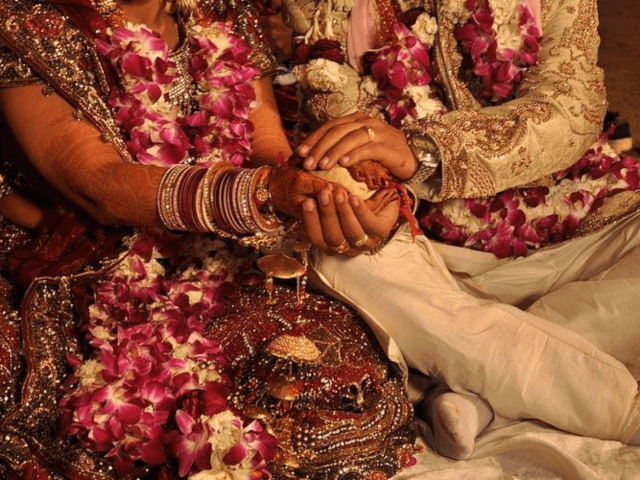A top Indian jewelry retailer on Tuesday withdrew an advertisement featuring an interfaith Hindu-Muslim baby shower after a backlash on social media by Hindus who said it glorified “love jihad.”
The commercial depicted a “Muslim family organizing a traditional baby shower for their Hindu daughter-in-law,” according to Agence France-Presse (AFP). Tanishq, owned by the Indian multinational conglomerate Tata Group, created the advertisement and released it last week.
“Despite the advert’s withdrawal, #BoycottTanishq was trending on Twitter, with one user saying it was meant to showcase the ‘love jihad collection,'” AFP reported on Wednesday.
“Love jihad” is a term used derisively to describe the alleged romancing of non-Muslim women by radical Muslims for the purpose of converting them.
Tanishq defended its advertisement on Tuesday, explaining that the idea behind the jewelry collection it promoted in the ad was to “celebrate the coming together of people from different walks of life.” The collection was named “Ekatvam,” meaning “unity and oneness” in Sanskrit.
India’s NDTV reported on Wednesday that a Tanishq store was threatened and possibly attacked in the western state of Gujarat as part of the public backlash against the advertisement.
“Threats were also made at the store and the manager was forced to write an apology note for the ad that had been withdrawn earlier after vicious trolling on social media. The police claimed there was no attack on the showroom and added that they had been patrolling the area. There was no explanation, however, on why the apology was put up outside the store,” NDTV noted.
“The local mayor later denied the report [that the Tanishq store was attacked], although he said police patrols near the outlet were increased,” AFP reported of the incident.
“We are deeply saddened with the inadvertent stirring of emotions and withdraw this film keeping in mind the hurt sentiments and well being of our employees, partners, and store staff,” Tanishq said in a statement released late Tuesday.
Tanishq’s choice to illustrate an imaginary interfaith Hindu-Muslim baby shower was ambitious, given the fact that most Hindus and Muslims maintain contrasting perspectives on the tradition.
“Tata’s owners are from the Parsi minority who follow the Zoroastrian religion,” AFP noted. Parsis fled Muslim persecution in Iran in the 7th century AD and settled in India in the 10th century. The minority group has “since played an outsized role in the evolution of India’s economy as pioneers of trade and industry,” making up “less than 0.005 percent of India’s population but three out of the country’s top 10 billionaires,” according to the Wall Street Journal.
Muslims constitute roughly 14 percent of India’s population, while Hindus account for about 74 percent of the nation’s 1.3 billion people.
“Interfaith relationships are very rare in India, and when they do exist, they create additional social pressures,” Amit Thorat, an assistant professor at the Center for the Study of Regional Development at Jawaharlal Nehru University in New Delhi told the New York Times on Tuesday. According to a 2016 survey Thorat helped conduct, only five percent of marriages in India are intercaste.
“These data belie the perception that with modernity and economic progress, traditional barriers of caste have broken down,” the survey argued, adding that “The [Indian] caste system is an ancient relic of a social hierarchy once based on division of labor.”
India’s caste system remains intrinsically intertwined with religion, and most Indians still oppose inter-caste and inter-faith marriages today.
“Indians are legally allowed to marry outside their caste. A law on inter-caste marriage was passed more than 50 years ago, but those who do are still threatened or attacked, often by their own families,” the study revealed.
“A 2016 survey, Social Attitudes Research for India (Sari), conducted across Delhi, Mumbai, and the states of Uttar Pradesh and Rajasthan found the majority of respondents opposed to inter-caste and inter-religious marriages. In fact, they were in favor of a law banning such marriages,” the BBC reported in April 2019.

COMMENTS
Please let us know if you're having issues with commenting.